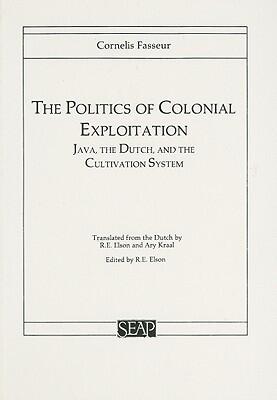
The Politics of Colonial Exploitation: Java, the Dutch, and the Cultivation System
Ancora nessuna valutazione
Formato
Brossura
Pagine
266
Lingua
Inglese
Pubblicato
Jan 1, 1994
Editore
Cornell University Southeast Asia Program Publications
ISBN-10
0877277079
ISBN-13
9780877277071
Descrizione
In exploring the intricate dynamics of colonial power, this work delves deeply into the Cultivation System implemented in Java during the mid-19th century. Fasseur and Elson uncover the systemic exploitation that characterized this period, shedding light on the relationship between the Dutch colonizers and the local population. Their analysis reveals how this agricultural policy shaped economic practices, social structures, and the very fabric of Javanese life.
Through meticulous research and compelling narratives, the authors illustrate the profound impact of these colonial policies on the agricultural landscape of Java. They document the strategies employed by the Dutch to maximize profit at the expense of local welfare, bringing into focus the human stories behind the statistics. The consequences of these exploitative practices resonate far beyond the historical timeframe, influencing contemporary discussions about colonial legacies and post-colonial identities.
This examination serves not only as a historical document but also as a critical reflection on the ethics of colonial governance. The authors invite readers to contemplate the broader implications of such exploitative systems and the ongoing struggle for autonomy and recognition by those who were subjugated. The narrative ultimately emphasizes the need to confront the past to understand its lasting effects on modern society.
Through meticulous research and compelling narratives, the authors illustrate the profound impact of these colonial policies on the agricultural landscape of Java. They document the strategies employed by the Dutch to maximize profit at the expense of local welfare, bringing into focus the human stories behind the statistics. The consequences of these exploitative practices resonate far beyond the historical timeframe, influencing contemporary discussions about colonial legacies and post-colonial identities.
This examination serves not only as a historical document but also as a critical reflection on the ethics of colonial governance. The authors invite readers to contemplate the broader implications of such exploitative systems and the ongoing struggle for autonomy and recognition by those who were subjugated. The narrative ultimately emphasizes the need to confront the past to understand its lasting effects on modern society.
Recensioni
Nessuna recensione ancora
Sii il primo a recensire questo libro e condividi i tuoi pensieri
Aggiungi Prima RecensioneRegistro di Lettura
Nessun registro di lettura trovato
Inizia a tracciare i tuoi progressi di lettura per vedere i registri qui
Aggiungi il tuo primo registro di letturaNote
Registro delle transazioni
Nessun registro delle transazioni trovato
Inizia a tracciare le tue transazioni di libri per vedere i registri qui
Aggiungi il tuo primo registro di transazione